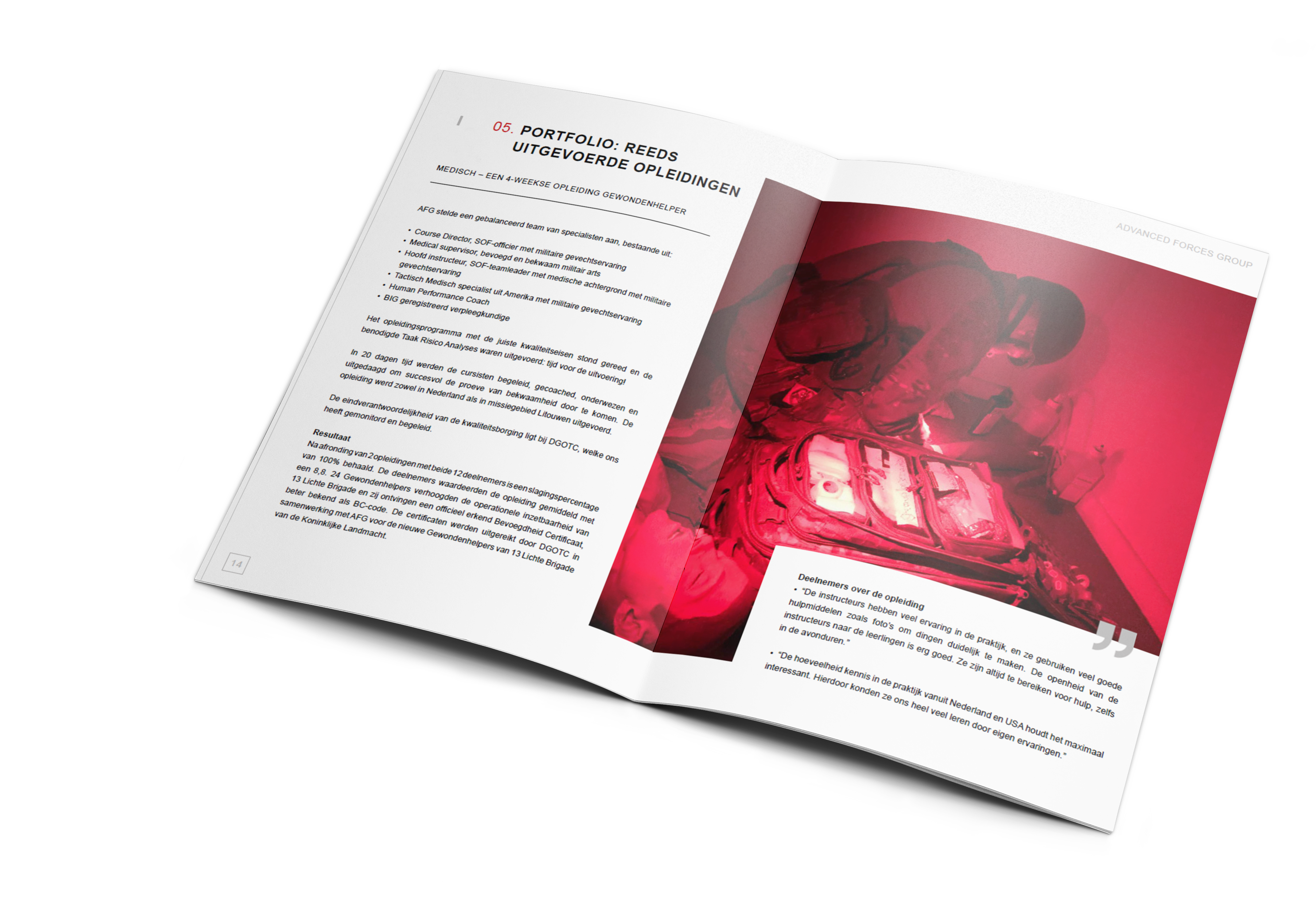 COMBAT LIFE SAVER CURRENCY TRAINING
COMBAT LIFE SAVER CURRENCY TRAINING
A two-day, hands-on tactical medical training course that upskills our partners with the latest knowledge resulting in the annual renewal of the Certificate of Competence (BC code).
98% success rate
Meets the quality requirements of your internal training
NRTO certification
 MORE ABOUT THE TRAINING COURSE
MORE ABOUT THE TRAINING COURSE
As a Life Saver, also known as Combat Life Saver (CLS), it is important to maintain and renew knowledge and skills with additional, new developments within the profession. AFG offers a 2-day currency training for this purpose to our partners at the Ministry of Defence, the Police or Safety Regions.
During the course of two days, participants are trained in the latest developments by means of realistic scenarios and practice the application of the MARCH protocol.
After completing this training course, participants have their Certificate of Competence (BC code) renewed for a whole year, which increases the operational deployability of the unit.
 PARTICIPANTS
PARTICIPANTS
This training course is suitable for participants who have the Combat Life Saver Certificate of Competence (BC code).
BOTH TRAINING INSTITUTES AND OPERATIONAL UNITS
AFG agrees with both Training Institutes and Operational Units on the exact content of the training programme. Both can provide the training. This training course is suitable for Operational Units of the Dutch Ministry of Defence, the Police and its NATO partners.
 Details: About the training course
Details: About the training course
- What: Combat Life Saver Currency Training
- Also known as: Combat Life Saver (CLS) Currency Training. The currency training is fully in accordance with Dutch Defence Standards, extending the currency of the Dutch Certificate of Competence (BC code) by another year.
- Where: External training carried out by AFG, on location or at our own training institute.
- Duration: 2 days.
 TRAINING PROGRAM
TRAINING PROGRAM
The training programme includes the following subjects:
- Reporting a casualty;
- Providing medical care in accordance with TCCC, MARCH protocol;
- Operational Medical Mission Planning;
- Executing a request for medical transfer;
- Preparing a casualty transfer;
- Carrying out the transfer;
- Triage;
- Care under Fire;
- Preparing and assembling medical equipment and resources for missions.
At the end of the training, course participants will be able to perform their core task of “providing medical care” and the sub-tasks “providing care during Care under Fire and Tactical Field Care”, and “preparing transport of a casualty for medical transfer” as a tactical medical professional.
In consultation with the operational unit, tailor-made solutions can be provided for specific training scenarios.
 REVIEWS
REVIEWS
 PORTFOLIO
PORTFOLIO

